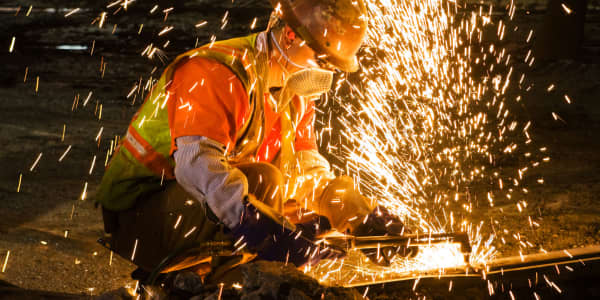
In today's competitive job market, with many Americans working past traditional retirement age or struggling to find something in their field after a company layoff, the prospect of completely changing careers can be both tempting and daunting. In this video segment, CNBC senior personal finance correspondent Sharon Epperson talks to Caroline Ceniza-Levine, co-founder of career-coaching firm SixFigureStart, about how—and whether—to change careers later in life.
Ceniza-Levine's first piece of advice for those thinking about switching industries is that "ultimately, you don't want to seem like you're changing careers."
"You really want to decide where you're going to and learn that job function and industry very well," she told Epperson.
Starting over in an unfamiliar field is not the ideal job-search approach, "but if you know the industry well and if you can show that your skills are transferable, it's definitely doable," Ceniza-Levine added. "Sometimes you want to be in a new industry and that desire is an advantage."
Read MoreJob tips for entrepreneurs
Should career-changers set a timetable? Ceniza-Levine noted that switching industries generally takes longer than a typical job search within one's existing field, which itself can take several months. But hard work, and sometimes a little good luck, can speed up a job offer in a new industry.
Baby boomers who want or need to work past retirement and reinvent themselves to stay relevant can draw on what Ceniza-Levine calls "a body of experience and a deep network." They should tap into that workplace knowledge, pointing out their marketplace experience and contacts, some perhaps stretching back decades, to potential employers.
Career-changers in their 50s and 60s "arguably … might be even in a better competitive state" than younger workers, she added.





